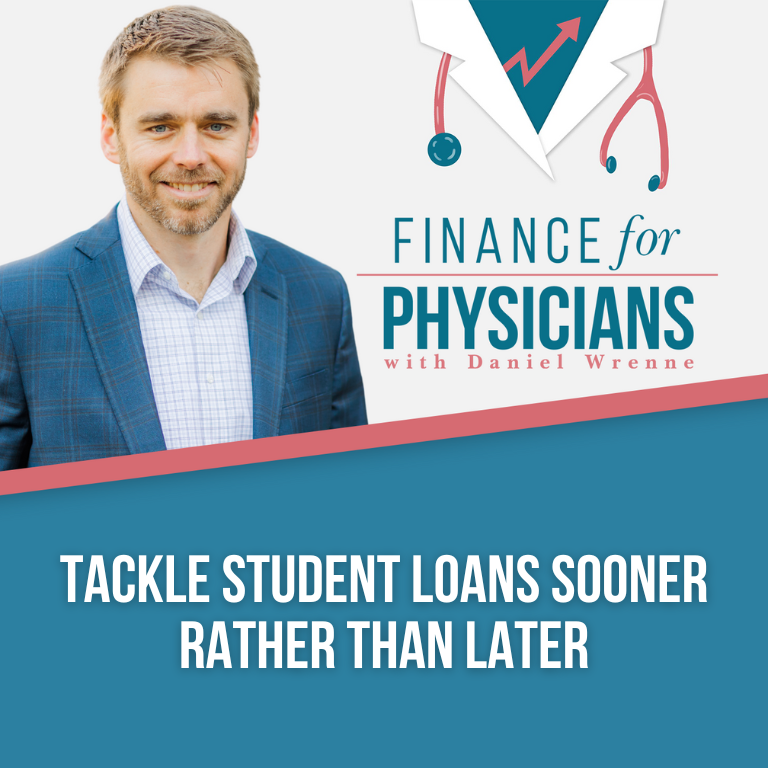Even though physicians often earn hefty six-figure salaries, many graduate with a mountain of debt.
According to the AAMC, 79% of physicians graduating in 2015 will face debts of over $100,000. Forty-three percent will be repaying over $200,000 of debt, and ten percent will tackle over $300,000.
That’s a considerable sum, even with a high salary.
Even though these numbers are daunting, student debt is part of the profession. Doctors spend a minimum of seven difficult years studying and practicing before obtaining a license.
From highly skilled teachers to machinery, it takes a great deal to properly educate a physician. For most physicians, an expensive tuition bill is unavoidable.
Don’t Let Debt Damage Your Life
With so much debt, it’s crucial to manage your debt properly. If the debt is mismanaged, it can destroy your financial life.
There are serious consequences to defaulting on federal loans. For one, it’s possible that the government suspend your license or prevent you from working in a facility that receives money from the Medicare or Medicaid programs.
It doesn’t stop there. The government can even garnish your social security benefits if you fail to repay your federal loans before retirement age.
These are certainly extreme examples. Very few physicians ever face such challenges.
However, even for those with more manageable debt levels, student loans can feel like a burden. Many physicians feel the burden of large monthly payments when trying to buy a home, start a family, or save for retirement.
Tackle Debt and Create Wealth
Don’t let the large amount of loans deter you from creating a better financial future for yourself and your family. It’s totally possible to tackle the debt.
More than just tackling debt, it’s possible to build wealth.
It helps that as a medical professional, you do bring home a healthy salary. Most doctors make at least $150,000 a year, and and most physicians make more than $200,000 after six years of practice.
There are several moves you can make to make the most of your salary and tackle your loans appropriately.
Create a Debt Repayment Plan
With such negative repercussions for defaulting on student debts, creating a debt repayment plan is the highest priority.
It’s possible you could pay back your loans on a 10 year standard plan. However, you might greatly benefit from programs like Income Based Repayment, Pay As You Earn, public service loan forgiveness, and the VA Education Debt Reduction Program.
A financial professional can also help you figure out the tax implications of your various repayment options.
Protect Yourself and Your Family with Insurance
You’d be surprised at the amount of physicians who are not properly insured. Life insurance is important to make sure your family will be financially stable if you were to pass away.
But you’ll also want to consider disability insurance. The rules around qualifying for federal disability and discharging student loans are extremely tight.
If something happens to you that prevents you from practicing but you’re still able to earn a wage, it’ll be very tough to get any relief on your student loans.
Save And Invest For The Long Haul
Even though paying off medical student loan debt might seem like the top priority, it’s important to consider taking care of your future self by saving for retirement.
Considering the high income of physicians, investing in tax-deferred retirement vehicles like a 401(k) or a traditional IRA will offer significant tax savings. A financial professional can help you run the numbers to determine how to meet your more immediate goals while taking advantage of tax savings.
By tucking away some money before bringing it home, you’ll also help yourself avoid the temptation to overspend in your post-residency years. It’s much easier to save for your future if the money never reaches your bank account.
It’s easy to feel discouraged when it feels like you have piles and piles of medical student loan debt. Remember that nearly all physicians have loans, and nearly all are able to pay off the debt.
When you do pay off the loans, you’ll have a great deal of disposable income to spend and invest. By managing your debt and your money, you’ll be able to create wealth for yourself and your family.
